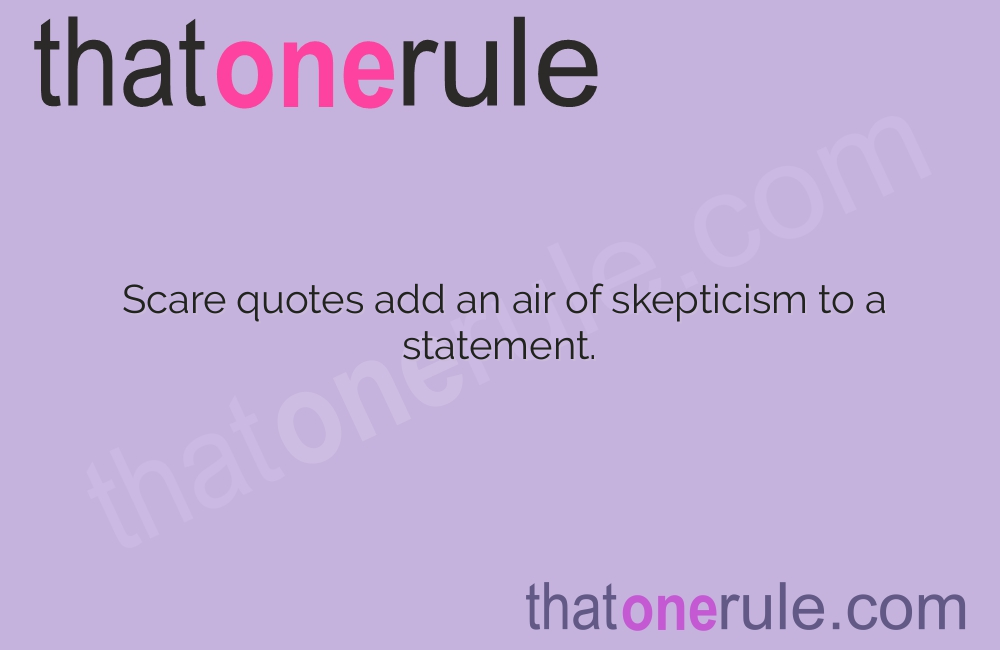Understanding the Concept of Scare Quotes

Scare quotes add an air of skepticism to a statement.
The use of scare quotes allows for a nuanced understanding of a phrase.
Scare quotes can be a subtle way of expressing disagreement.
Sometimes scare quotes can make a statement sound sarcastic.
Scare quotes can be seen as a form of linguistic irony.
Using scare quotes can elicit a range of emotional responses.
Scare quotes can challenge the assumed meaning of a word or phrase.
Scare quotes can serve as a linguistic tool for precision.
Scare quotes offer a way to distance oneself from a particular concept.
Scare quotes can provoke thought and critical analysis.
Scare quotes can make a statement appear dubious.
Scare quotes can be used strategically to undermine an argument.
The intent behind scare quotes is often open to interpretation.
Scare quotes can create a sense of irony or disbelief.
Scare quotes can signal a departure from conventional meanings.
Using scare quotes can demonstrate a certain level of skepticism.
Scare quotes can be used to emphasize the differences between intended and surface meanings.
Scare quotes can be jarring, but they serve a purpose.
Scare quotes invite the reader to question the underlying assumptions.
Scare quotes can convey a layer of complexity to a statement.
Using scare quotes allows for a deeper exploration of language and meaning.
Scare quotes can be seen as a form of literary device.
Understanding the Concept of Scare Quotes part 2
Scare quotes challenge the notion of fixed definitions.
Scare quotes can highlight language’s inherent subjectivity.
Scare quotes can make the reader pause and reflect on the statement.
Scare quotes can be used to cast doubt on a commonly accepted belief.
Using scare quotes can be an effective rhetorical strategy.
Scare quotes can blur the line between fact and interpretation.
Scare quotes serve as a reminder that language is fluid and evolving.
Scare quotes allow for multiple meanings to coexist within a statement.
Scare quotes can be used to express humor or irony.
Using scare quotes can illuminate the power dynamics embedded in language.
Scare quotes can be a subversive tool in challenging established discourse.
Using scare quotes helps to navigate the complexities of meaning.
Scare quotes can be a form of linguistic rebellion.
Scare quotes force the reader to actively engage with the statement.
Scare quotes can be used to dismantle oversimplified narratives.
Using scare quotes can highlight the limitations of language.
Scare quotes can make a statement appear more thought-provoking.
Scare quotes add a layer of ambiguity to a statement.
Using scare quotes can convey a sense of skepticism towards authority.
Scare quotes help to disrupt the status quo of language.
Scare quotes can be a form of intellectual resistance.
Using scare quotes can challenge societal norms and biases.
Scare quotes inspire critical thinking and questioning of assumptions.

